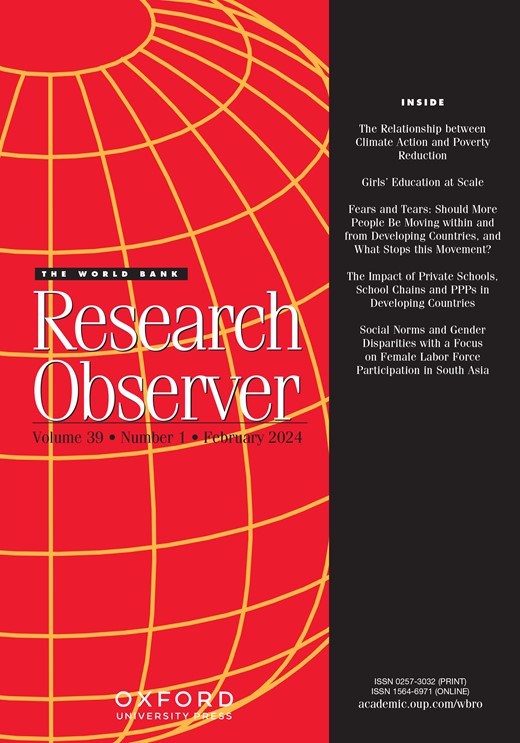重新审视数字包容的测量
IF 3.3
1区 经济学
Q1 DEVELOPMENT STUDIES
引用次数: 0
摘要
随着数字化转型对发展的重要性日益明显,澄清概念和提出标准化和准确的数字包容措施的需求变得更加迫切。本文以互联网作为一项基础技术为重点,提出了数字包容的核心组成部分框架,包括接入/使用、接入/使用质量、可负担性和数字技能。然后,论文调查了目前在家庭和企业调查以及国际组织中衡量这些组成部分的方式。在对广泛来源的数据进行简单的描述性分析的基础上,本文强调了当前措施中一些经常被忽视的弱点,并提出了可能的改进建议。本文认为(a)数字包容的某些核心组成部分的指标——包括获取/使用质量和数字技能——相对不发达,(b)关于技术使用和技能的一些问题可能需要适应发展中国家的环境,(c)应该更多地关注国际组织报告的统计数据中的国家内部不平等,(d)目前可用的数字包容指数不是很有用,(d)目前的数字包容指数不是很有用。(e)使用大数据方法来衡量数字包容有很大的潜力。本文章由计算机程序翻译,如有差异,请以英文原文为准。
Revisiting the Measurement of Digital Inclusion
Abstract As it becomes increasingly clear how central digital transformation is to development, the need for clarifying concepts and for coming up with standardized and accurate measures for digital inclusion becomes more urgent. Focusing on the internet as a foundational technology, this paper sets out a framework of core components of digital inclusion—including access/use, quality of access/use, affordability, and digital skills. The paper then surveys the ways these components are currently measured in household and firm surveys and by international organizations. Building on simple descriptive analysis of data from a wide range of sources, the paper highlights some of the often-overlooked weaknesses of current measures, and suggests possible improvements. The paper argues that (a) metrics for certain core components of digital inclusion—including quality of access/use and digital skills—are relatively underdeveloped, (b) some questions on technology use and skills may need to be adapted to developing country settings, (c) more attention should be paid to within-country inequalities in statistics reported by international organizations, (d) currently available digital inclusion indices are not very useful, and (e) there is much potential in using big data methods to measure digital inclusion.
求助全文
通过发布文献求助,成功后即可免费获取论文全文。
去求助
来源期刊

World Bank Research Observer
Multiple-
CiteScore
12.60
自引率
1.20%
发文量
8
期刊介绍:
The World Bank Journals, including the Research Observer, boast the largest circulation among economics titles. The Research Observer is distributed freely to over 9,100 subscribers in non-OECD countries. Geared towards informing nonspecialist readers about research within and outside the Bank, it covers areas of economics relevant for development policy. Intended for policymakers, project officers, journalists, and educators, its surveys and overviews require only minimal background in economic analysis. Articles are not sent to referees but are assessed and approved by the Editorial Board, including distinguished economists from outside the Bank. The Observer has around 1,500 subscribers in OECD countries and nearly 10,000 subscribers in developing countries.
 求助内容:
求助内容: 应助结果提醒方式:
应助结果提醒方式:


